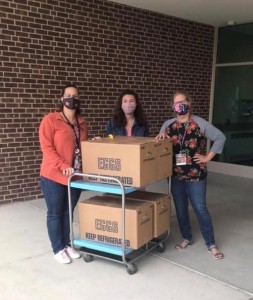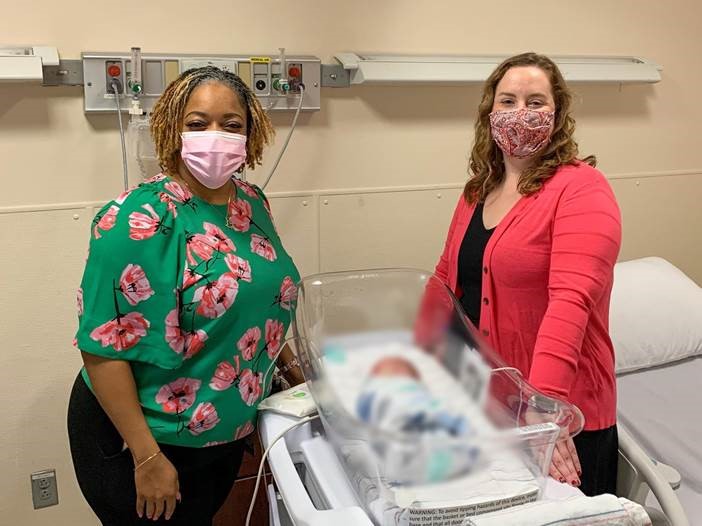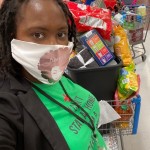NASW asked social workers to tell us about the essential work they’ve been doing throughout the pandemic. Here are just a few of their stories.
Managing Adoptions
Last November, Illinois residents Brad and Cassie went to Tallahassee, Fla., to grow their family through adoption, Tallahassee Memorial Healthcare wrote on its Facebook page last year. “When the adoption fell through at the last minute, they were devastated. Unbeknownst to Brad and Cassie, while they processed this loss, a newborn little boy in need of a family lay in the NICU of Tallahassee Memorial Healthcare, growing bigger and stronger every day.
Enter Kristi Johnson and Kelly Heffner. Familiar with both predicaments, they had an idea. Brad and Cassie were without a baby and this little boy was without a home – maybe, just maybe, they were each other’s missing pieces.
After much coordination with the families, state agencies, My Choice Adoption – who worked with and supported the baby’s birth parents as they lovingly decided to place their child for adoption – and others, what was once an idea has become a reality. Brad and Cassie adopted a sweet little boy, now named Logan. The name, which means “little warrior,” couldn’t be more fitting for baby Logan, who was born at just 3 lbs.
Surrounded by love and support, Logan is now home in Illinois with Brad, Cassie and his three big sisters who could not be more thrilled to add a baby brother to their ranks. And while Brad and Cassie’s story didn’t go as planned, with the help of Kristi and Kelly, it’s even more beautiful than they ever could have imagined.
We’ve always known our case managers rock, but after hearing the incredible way Kristi and Kelly, two social workers for our Women’s & Children’s patients, recently helped one family, we’re truly blown away.”

School social workers Lindsay Knepp, MSW, LSW, and elementary school social worker, Amanda Musser, MSW, LCSW, and food services director Maria Kreider have been delivering food to school children throughout the pandemic in South Central Pennsylvania.
Keeping Children Fed
Throughout the pandemic, school social workers Lindsay Knepp, MSW, LSW and Amanda Musser, MSW, LCSW and food services director Maria Kreider from the Palmyra Area School District in Lebanon County, Pennsylvania, which is in Central, Pa., have been distributing free meals to the community through the U.S. Department of Agriculture (USDA’s) school lunch program in order to make sure “children in our community are fed and their needs are met,” Amanda Musser told us.
Helping Clients Living With Disabilities
“I love what I do because it gives the people that I work with a second chance that many did not think they had,” says Diana Baker, BSW, an MSW candidate in her final year at UNC Chapel Hill. She’s a social worker in Winston Salem, N.C. and has worked throughout the pandemic transitioning older adults and persons living with physical disabilities to skilled facilities in their communities or with family or in their own homes.
“I work in two Medicaid programs. The MFP (Money Follows the Person) and CAP (Community Alternative Program for Disabled Adults). MFP provides money ($3k per person) to help get them home so that’s paying deposits, buying furniture, or whatever they need to get started in the community,” which also includes subsidized apartments.
“Before COVID when I would walk in a facility for initial contact and explain what the program helps with the participants would light up. One thing that most of them tell me is that they want their independence back. It brings me joy to help them get it.”
Do you have a story you’d like to tell? Email a blog or a quote and your photo or a 10-second video to media@socialworkers.org. Be sure to place My Essential Social Work Story in the Subject Line and don’t forget to share your title, credential and city and state.





